1. Likert
2. SOLO
2.1. What is one important idea I learned from this?
2.1.1. Define: Unistructural question
2.2. Why is this idea important?
2.2.1. Explain: Relational Question
2.3. What is this idea about?
2.3.1. Elaborate/describe: Multistructural question
2.4. How does this apply to my life/context/situation?
2.4.1. Apply: Relational question/Extended Abstract Question
2.5. What does this idea make me wonder?
2.5.1. Wonder: Extended Abstract Question
3. QUESTION TYPES
3.1. Convergent
3.1.1. Closed, not offering many options; converges on a single or narrow list of "best answers"
3.2. Divergent
3.2.1. Open, having many responses; permits the exploration of diverse perspectives; encourages dialogue
3.3. Focal
3.3.1. Student must choose or justify a position
3.4. Brainstorm
3.4.1. Questions that generate a list of ideas or viewpoints
3.5. Shotgun
3.5.1. Questions that generate a list of ideas or viewpoints
3.6. Funnel
3.6.1. Multiple questions starting broadly and gradually leading to more focussed inquiry
3.7. Evaluative
3.7.1. Requires students to formulate a response based on their opinion
4. PURPOSE
4.1. Retrieval-based learning
4.2. Practicing with existing knowledge
4.3. Predicting
4.4. Connecting
4.5. Surfacing misconceptions
4.6. Surfacing preconceptions
4.7. Encouraging mistakes
5. BEST PRACTICE STRATEGIES
6. BLOOMS
6.1. Remembering - Knowledge
6.1.1. List, name, identify, show, define, recall, state
6.2. Understanding - Comprehension
6.2.1. Summarise, explain, interpret, describe, compare, differentiate, restate
6.3. Applying - Application
6.3.1. Solve, illustrate, calculate, use, interpret, relate, apply, classify, modify
6.4. Analysing - Analysis
6.4.1. Analyse, organise, deduce, choose, contrast, compare, distinguish
6.5. Evaluating - Evaluation
6.5.1. Evaluate, estimate, judge, defend, criticise, justify
6.6. Creating - Synthesis
6.6.1. Design, hypothesise, support, schematise, devise, create, construct
7. KNOWLEDGE DIMENSIONS
7.1. Factual
7.1.1. is knowledge that is basic to specific disciplines. This dimension refers to essential facts, terminology, details or elements students must know or be familiar with in order to understand a discipline or solve a problem in it.
7.2. Conceptual
7.2.1. is knowledge of classifications, principles, generalizations, theories, models, or structures pertinent to a particular disciplinary area.
7.3. Procedural
7.3.1. refers to information or knowledge that helps students to do something specific to a discipline, subject, area of study. It also refers to methods of inquiry, very specific or finite skills, algorithms, techniques, and particular methodologies.
7.4. Metacognitive
7.4.1. is the awareness of one's own cognition and particular cognitive processes. It is strategic or reflective knowledge about how to go about solving problems, cognitive tasks, to include contextual and conditional knowledge and knowledge of self.
8. DEEPER LEARNING
8.1. Engaging higher order thinking skills
8.2. Students reflecting on their own thinking
8.3. Metacognitive approach
8.4. Developing critical thinking skills
8.5. Beautiful questions
9. MULTI-CHOICE (MCQs)
9.1. How2MCQ
9.1.1. Tips for efficiently writing questions
9.1.2. Interactive lectures - as easy as M-C-Q
9.1.3. MCQ types
